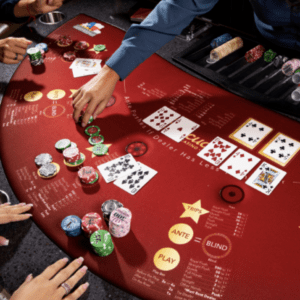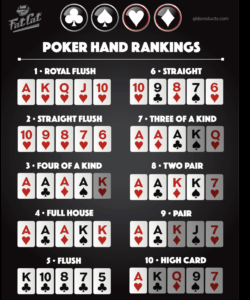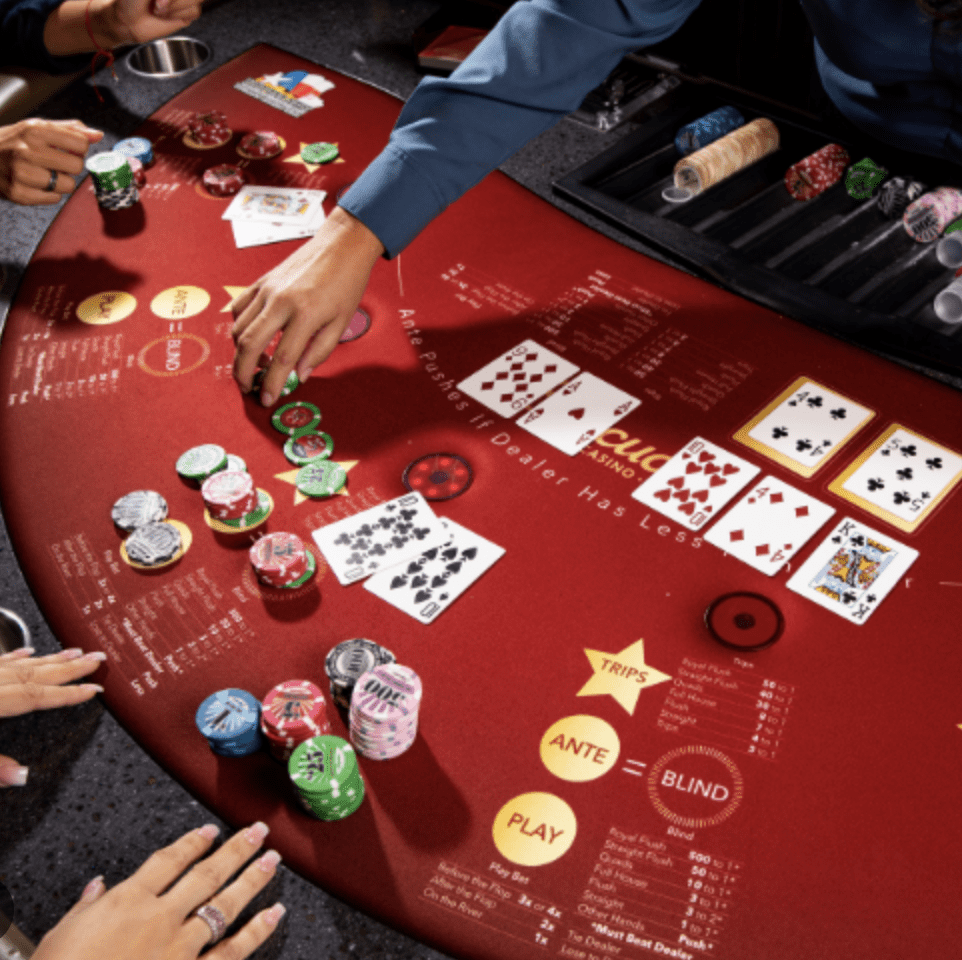

I decided to play Poker for this critical play. Although it would have been interesting to see how people react in more high-stake environment, due to religious reasons, my friends and I played a version where no actual betting was involved and no profits were gained. However, I was still shocked at how the game developed. While there is no direct confirmation, Poker is said to have likely originated from New Orleans some time between 1810 and 1825, developing from a French game called Poque. Since then, the game has evolved to target a broader audience, and is currently most popular amongst Gen Z and Millenial demographics. In the United States, the legal age to engage in real gambling is 21 in most states.
How does this game engage with aspects of probability, and how is randomness feeding into addiction?
Every aspect of the game engages with probability and randomness. There is an inherent unpredictability of outcomes as every hand in poker is random, already putting everyone on edge. This suspense, combined with the social dynamics that arise, create the perfect formula for addiction. You must calculate the odds of certain hands, the pot, and almost always work with incomplete or untrustworthy information. Near misses (often interpreted as near-succesesses by players) make the urge to keep playing even more compelling, as you always feel like a big win is around the corner. This game also seemed to be the perfect ground for sunk-cost fallacy to dominate, where even after a loss, players will try even harder just to win what they lost. All of these things set one up for what can be an intense emotional rollercoaster with really high highs and extremely low lows.
How might this game put people at risk for addiction?
The effects of the previously discussed mechanics culminate in even more addiction-inducing social dynamics. The psychological aspect of poker is also riddled with randomness. Certain players take advantage of this to manipulate their opponents. They do this by talking about luck as if it is a part of their identity or, even in situations where luck was clearly dominant, will attribute this to them being “really good at reading people” or a certain personality trait. These players then egg their opponents on to make rash decisions by reinforcing this idea that they’re beatable if only the opponent was just good enough. Unbeknownst to the players, this type of behavior creates the illusion of control and incentivizes people to keep playing, thus feeding into addiction. In the end, this perfect storm of faulty cognitive biases, twisted self-perception, and optimistic overconfidence about beating odds, combined social reinforcement creates incredibly addictive behaviors.
How does it compare to other games that use chance or probability?
I believe what makes this game different is how big of a role social dynamics play. The flames of randomness fan the psychological aspects of the game in a way that games like Blackjack, where players mostly probabilistically engage with the dealer, lack. Poker constantly requires restrategizing, bluffing, reading opponents, and capitalizing on social skills.




